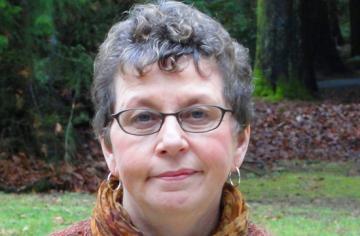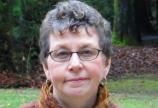Author generating “critical hope” in approach to reconciliation
- Bryna Hallam

For Dr. Paulette Regan, “how people learn about historical injustices is just as important as the truths about what happened.” Regan, who became UVic’s first graduate from the Indigenous Governance Program, receiving her PhD in 2006, is the Director of Research for the Truth and Reconciliation Commission of Canada. Her work examines the role truth-telling and reconciliation processes can have in teaching–or re-teaching, as the case may be–Canadians about their history.
In her new book, Unsettling the Settler Within (UBC Press 2011), Regan urges non-Indigenous Canadians to examine the accepted history of the country and challenge the “cherished national myth” of Europeans as benevolent peacemakers.
“It is a call to action, a pedagogical strategy for grappling with the complex history and legacy of Indian residential schools,” Regan said at the book’s launch Jan. 25 on campus. “I believe that education is not simply about the transfer of knowledge but is a transformative experiential learning that empowers people to make change in the world.”
In part, the book recounts Regan’s personal journey into what she calls “the visceral heart of Indigenous-settler relations,” from her days as a student at UBC to her work with residential school survivors in Hazelton, BC.
Regan, a non-Indigenous person, prepared for her work as claims resolution manager in the small northern village by reading and reviewing documents in Vancouver, but found that hearing the live testimony of survivors brought home the full impact of the residential schools in a way that reading about it never could.
“In their eyes, I was not an ally, but a perpetrator,” she said—a realization that brought feelings of empathy, denial, guilt, anger and fear. But in that time–one marked by her uncertainty and lack of knowledge–Regan also realized that “the real work of reconciliation is forged in the hard places.”
As a result, she calls on other non-Native Canadians to take a critical look at how the history of the country is presented and to open themselves up to the idea that violence lies at the core of relations between Euro-Canadians and Indigenous people.
“An unsettling pedagogy asks us as settlers to explore our own collective identity,” she said, “to plumb the depth of our repressed history, so that we can risk interacting differently with Indigenous peoples–with vulnerability, humility and a willingness to stay in the decolonizing struggle of our own discomfort.”
As much as Regan’s work compels non-Native Canadians to shoulder some of the responsibility of reconciliation, it is also very much about generating what she calls “critical hope.”
“I’m a mother, a grandmother. To do this work, I have to believe there is a reason,” she said. “We can’t think that just because we’re talking, things will magically work out.” To that end, she doesn’t see her book as the answer to what historian Roger Epp called “the settler problem.”
“I’m just laying out the groundwork. It’s just one approach. We all find different pathways,” she said, adding, “There is no one-size-fits-all approach. There are a multitude of ways to do this work.”

